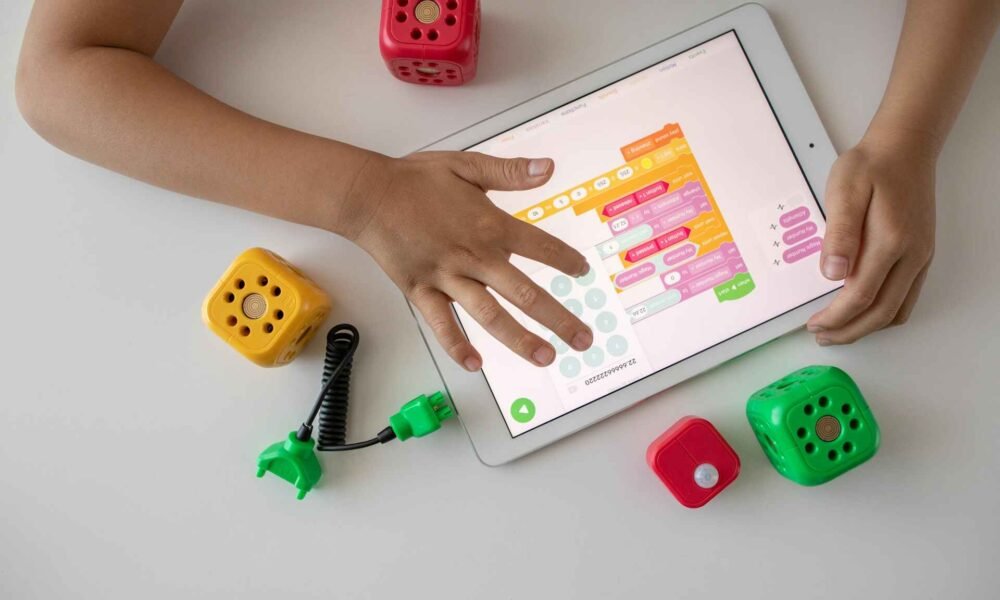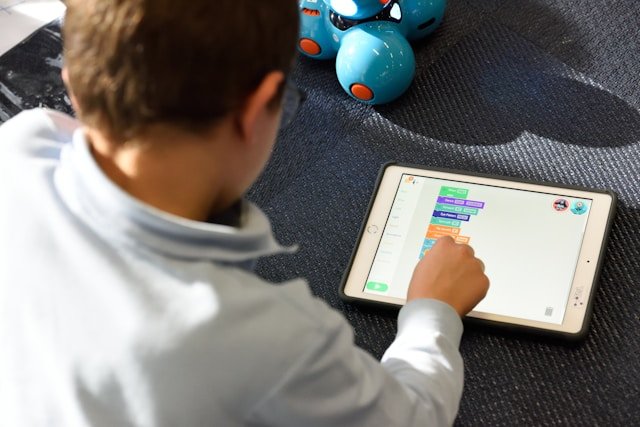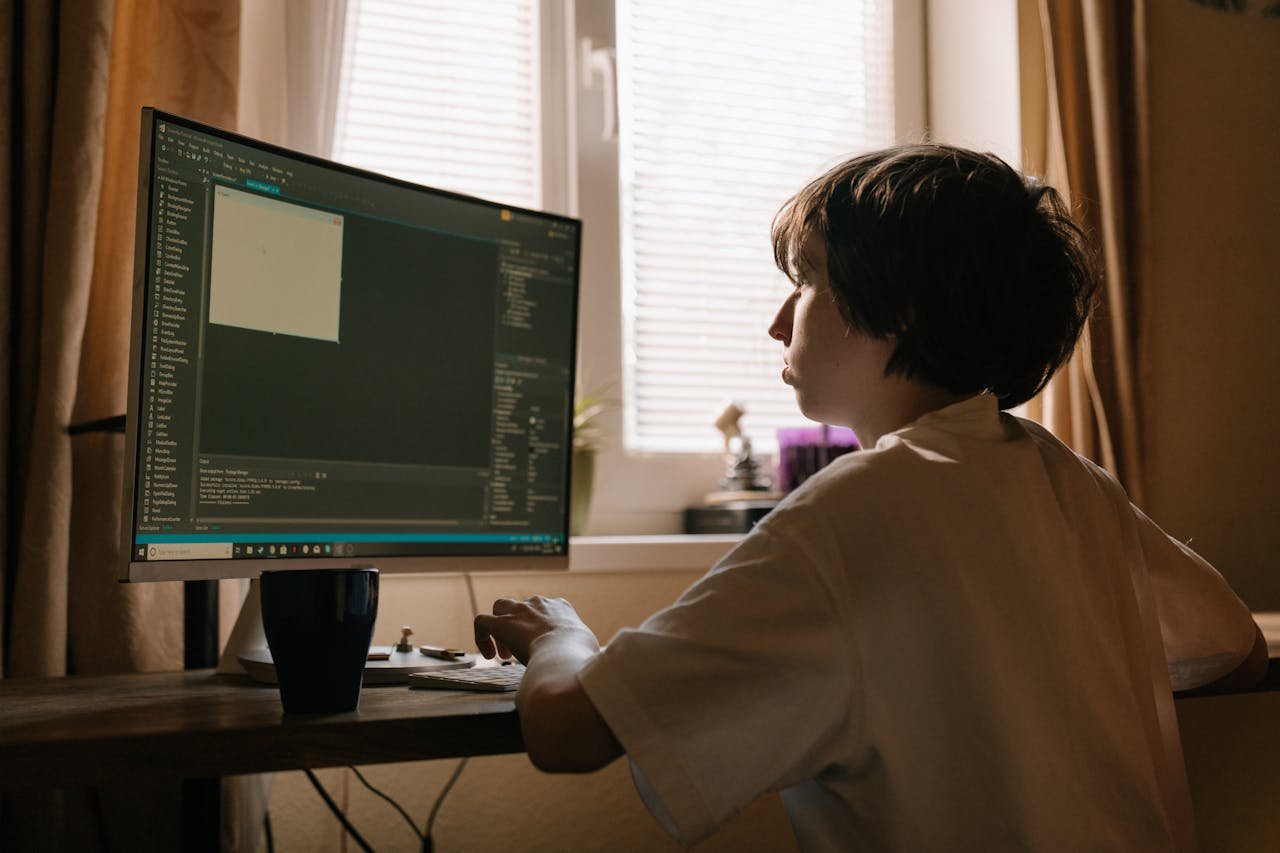
Unlocking Potential: Top Online Coding For Kids and Teens | Start Coding Today
In today’s digital age, coding has become a vital skill for kids and teens to learn.
What is Coding for Kids and Why is it Important?
Why should kids and teens learn coding?
Coding teaches problem-solving, logical thinking, and creativity, which are essential skills for success in the 21st century. It also prepares kids for future careers in technology, a rapidly growing and high-paying field.
What are the benefits of coding for kids?
- Improves computational thinking and analytical skills
- Fosters creativity and innovation
- Boosts confidence and a sense of accomplishment
- Prepares kids for future careers in technology and STEM fields
How to introduce kids to coding?
Start with age-appropriate resources, like coding games and block-based coding platforms. Make it fun and engaging by allowing kids to build their own games and apps. Encourage curiosity and exploration by letting them experiment with code.
How can I make coding fun for kids?

Hey there! Wanna make coding for kids super fun? Start with cool games and apps that make learning feel like playtime. Mix in some hands-on projects, like building simple robots or apps. It’s a blast to watch them light up as they learn coding basics through creativity and fun!
Tips to make coding engaging and enjoyable
- Use visual coding platforms with colorful interfaces
- Incorporate coding challenges and projects based on kids’ interests
- Celebrate their accomplishments and successes
- Encourage collaboration and peer learning
How does coding work for kids?
Many coding platforms for kids use block-based coding, where kids drag and drop code blocks to create programs. This visual approach makes coding accessible and easy to understand. As kids progress, they can transition to text-based coding using languages like Python.
Using coding for younger kids
For kids as young as 4-6, platforms like Scratch Jr introduce coding through storytelling and animation. Kids can create their own games and interactive stories by snapping code blocks together. This playful approach makes coding fun and engaging for younger learners.
What are good coding resources for kids?
Looking for awesome coding for kids resources? Try Scratch; it’s perfect for helping kids to learn the basics. Code.org is also super cool for beginners. Khan Academy offers interactive exercises for kids to learn to code. These tools make it fun for kids also! Let your kids program today!
Best online coding classes for kids

- Code.org: Offers free coding courses for various age groups
- Codecademy: Provides interactive lessons and coding projects
- Tynker: Features game-based coding courses and a kid-friendly interface
- Scratch: A visual coding platform for creating games and animations
What to look for in a coding resource for kids?
- Age-appropriate content and progression
- Interactive and engaging lessons
- Project-based learning opportunities
- Supportive community and resources for parents/teachers
Are there free coding options available?
Yes, there are many free coding resources for kids:
- Code.org: Offers free coding courses and Hour of Code activities
- Scratch: A free visual coding platform for creating games and animations
- MIT App Inventor: Allows kids to build their own apps for free
- Khan Academy: Provides free coding tutorials and interactive exercises
How can I help my kids learn to code?
Want to teach kids how to code but don’t know where to start? Coding for Kids has become a big deal, and there are so many online programs to help kids learn. Get your kids computer ready and dive into coding lessons. Kids at home can easily pick up coding basics through kids programming platform. It’s fun to see kids code to make a character move or even create your own games.
There are tons of resources out there so kids everywhere can learn coding right. When they want to learn, it’s easy to find kids courses and online coding courses that suit them. With a bit of coding experience, your kids will be able to solve problems and enjoy many of the games they create. Let’s get those kids coding!
Even without knowing how to code yourself, you can still support coding students. Many online kids programming platform offer step-by-step guides that make learning a breeze. By using coding as a way to make learning fun, you’ll help kids become confident little developers. Watching kids play around with code to achieve something is simply awesome!
Steps to get started with coding for kids
- Assess their interests and skill level
- Choose an age-appropriate coding resource
- Set achievable goals and celebrate milestones
- Encourage practice and exploration
- Provide support and guidance when needed
Understanding coding for beginners

Start with basic coding concepts like sequences, loops, and conditionals. Encourage experimentation and allow kids to make mistakes as they learn. Explain concepts in simple terms and relate them to real-world examples.
Using online resources to teach coding
Online resources like coding games, tutorials, and interactive lessons make learning fun and engaging. Many platforms offer step-by-step guidance and progress tracking to support kids’ learning. Encourage collaboration by letting kids share their projects with friends and family.
How to maintain your child’s interest in coding?
Looking to keep your child’s interest in coding alive? Start by getting them to learn how to code using a fun coding language like Scratch. Many online learning platforms offer courses that teach coding for kids and teens, and it’s a great way for kids ages 6 and up to dive into the world of coding. You could also enroll them in coding camps or online classes to gain more coding knowledge.
If they show a deeper interest, consider exploring more advanced programming languages such as Python programming. Many sites offer a free trial so you can see if it sparks their curiosity before committing. To teach your kids effectively, use interactive coding apps and coding for kids resources available online. This can enrich their computer programming skills and give them a solid foundation in computer science.
Join them in their coding adventure and even code in Scratch together! There are plenty of school coding clubs and online coding academy programs where kids can learn the coding basics. Don’t forget to check out coding for kids or coding with kids platforms which offer tailored coding curriculum for kids to start and nurture their coding skills at home. Happy coding!
Incorporating coding into daily life
Integrate coding into everyday activities, like creating apps to solve household problems or automating simple tasks. Relate coding to their hobbies and interests, such as creating games or building websites.
Join coding clubs and programs
Coding clubs and after-school programs provide a supportive community for kids to collaborate and learn together. Many offer coding competitions, hackathons, and mentorship opportunities.
Monitoring and tracking progress
Regularly review your child’s coding projects and assignments. Provide feedback and celebrate their achievements. Track their progress and adjust their learning path as needed.
FAQs
What age should a child start coding?
Kids can start learning coding concepts as early as 4-6 years old through block-based coding platforms like Scratch Jr. Text-based coding can be introduced around 7-9 years old with languages like Scratch and Python.
How do I start coding for my child?
Begin by assessing their interests and skill level. Introduce coding through games, apps, and interactive resources. Encourage exploration and celebrate their accomplishments. Provide support and guidance as needed.
What is the best coding program for kids?
Some popular and effective coding programs for kids include Code.org, Codecademy, Tynker, Scratch, and MIT App Inventor. The best program depends on your child’s age, interests, and learning style.
What is an example of coding for kids?
Block-based coding platforms like Scratch and Scratch Jr. allow kids to create games, animations, and interactive stories by dragging and dropping code blocks. Kids can also build apps and automate tasks using visual coding interfaces.
By learning to code, kids develop essential skills for the future while unlocking their creativity and problem-solving abilities. With the right resources and support, coding can be an incredibly rewarding and fun experience for kids of all ages.




